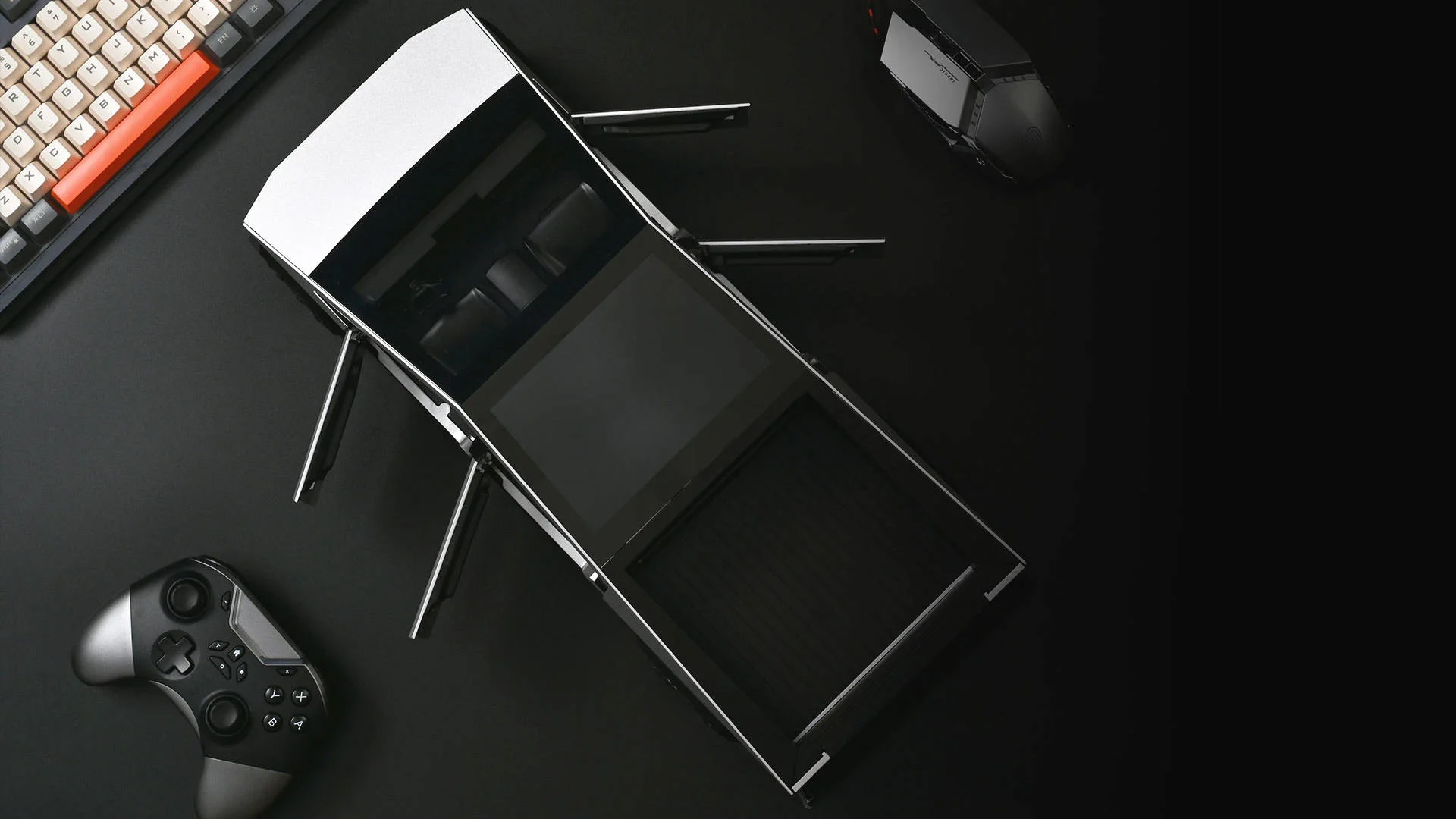The tech world has always been fascinated with unique and innovative designs, and the Xyber XPC, an AMD-powered mini-PC inspired by the Tesla Cybertruck, is no exception. This bold creation combines high-performance computing with a striking, if somewhat polarizing, aesthetic.
A Glimpse into the Xyber XPC
The Xyber XPC is currently an Indiegogo project, though tech YouTuber Taki Udon has already tested a sample unit. This mini-PC features moving wheels, doors, and working lights, mimicking the Cybertruck’s unique design.
Under the Hood
The heart of the Xyber XPC is the AMD Ryzen 7 8845HS, an APU boasting eight Zen 4 cores, 16 threads, 16 MB of L3 cache, and 768 RDNA 3 shaders. By default, the chip runs at a 54 W TDP, but Udon found that reducing it to 30 W via BIOS tweaking maintains performance while significantly lowering heat output. This tweak results in performance comparable to the Asus ROG Ally X, a top handheld gaming PC.
Memory and Storage
The Xyber XPC comes with 32 GB of DDR5-5600 RAM, a generous amount for a mini-PC. However, for optimal performance, upgrading to a faster dual-channel DDR5 kit is recommended. It also includes a 1 TB PCIe 4.0 NVMe SSD, with the motherboard supporting the standard M.2 2280 size, offering plenty of upgrade options.
Connectivity and Features
The mini-PC is equipped with several USB ports (USB 3.1 Gen 1, 1x Type A, and 2x Type-C), an HDMI 2.1 socket, and a 3.5 mm audio jack. Additionally, it supports Wi-Fi 6 and Bluetooth 5.2, ensuring robust connectivity.
Cooling System
While the design of the Xyber XPC may seem to constrain its cooling system, Udon’s tests at 30 W indicate that it performs adequately. However, the cooling efficiency could be a concern for users pushing the system to its limits.
Design and Functionality
A standout feature of the Xyber XPC is its detailed Cybertruck replication, complete with a moving steering wheel, suspension, hoods, and doors, as well as functioning front and rear lights. The power button is ingeniously integrated into the front suspension, activated by pressing down on the “frunk.”
Conclusion
The Xyber XPC is a fascinating blend of high-performance computing and unique design. While its resemblance to the Tesla Cybertruck might not appeal to everyone, the execution of fitting a powerful mini-PC into such a chassis is commendable. However, its design choice might be more polarizing, with some questioning the practicality and aesthetics of using the Cybertruck as inspiration.
Would I buy one? Probably not, but it’s hard to deny the creativity and technical prowess behind this project. The Xyber XPC is a testament to how far innovation can go, even if the inspiration material might not be everyone’s cup of tea.

